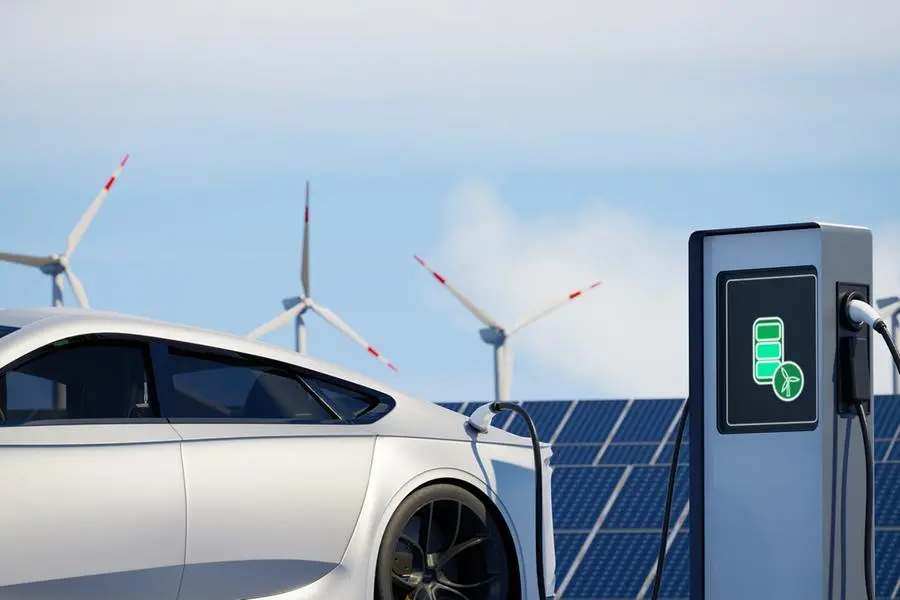PHOTO
South Africans are particularly polarised when it comes to the adoption of electric vehicles (EVs) in South Africa. Some believe that they have a bright future. Others have concerns – citing load shedding, a lack of charging infrastructure, and an unstable grid as overwhelming challenges. But what is the reality in South Africa – and what is the future likely to hold?
The rate of EV adoption will be impacted by the evolution of the economy, manufacturing, supply chains and new support systems.
According to two experts in the EV field – Winstone Jordaan, managing director of GridCars, and George Mienie, AutoTrader CEO – new energy vehicles (NEVs) make sense in South Africa. But this doesn’t mean that there aren’t challenges that need to be overcome.
Jordaan doesn’t believe that one of those challenges is charging. “There are currently more than 120 direct current (DC) fast chargers in South Africa – most of them installed on the national highways – and many of these already use a sustainable mix of renewable energy. These are obviously supplemented by home chargers,” he points out.
In 2012, GridCars started building a state-of-the-art charge station management system – working with original equipment manufacturer (OEM) partners such as Jaguar and Mercedes-Benz who have been installing smart connected chargers at all their customers’ homes. These chargers can already work together to smartly balance and manage the charging times. This is done by collaborating with the municipalities to ensure that the networks are not overloaded.
GridCars is said to have monitored more than 100,000 charging sessions in South Africa and the company has identified the typical patterns of EV drivers for both public and private charging. “These studies show that, by implementing the correct smart systems and renewable energy strategies, EVs will become a critical part of driving the energy solution for South Africa, and will have a net positive effect on the grid,” says Jordaan.
He reveals that a 5kWp home charger generates about 20kWh per day. “The average car drives approximately 50 km per day¹, which requires about 10kWh per day. These smart charging systems ensure that motorists are charging at optimal times when it comes to available energy. Charging midday with solar can mean that you pay as little as 30c/km, compared to ICE engines that can easily cost upwards of R2.00/km,” Jordaan explains.
On this note, he says mass adoption of EVs will benefit the economy. “The petrol for one million cars costs around R30bn (R30,000 per car) per year. The annual cost of electricity for one million EVs is less than R10 billion. This means that there is more than R20bn in disposable income that will become available,” Jordaan points out.
But surely it will be a challenge to charge all those EVs? Jordaan says not. “If we sell one million EVs in South Africa over the next 10 years, we will need to produce only 1.5% more electricity. To put this number in context, consider that this is 2.5GW of solar, which is about the amount of solar already installed in South Africa,” he reveals.
While this all sounds very promising, AutoTrader’s Mienie cautions that there are challenges to be overcome for widespread EV adoption in South Africa to occur.
Firstly, he says that the country needs a larger pool of used EVs. “We currently have approximately 7.8 million¹ used cars on our roads – but only approximately 3,500 are EVs. This is a challenge because the used car parc plays a significant role in the adoption of NEVs,” he explains.
“If we are to keep up with the world in terms of NEV adoption, we need to be adding more than 10,000 of them to the South African used car parc every year over the next 10 years. This is roughly under 10% of local annual demand. And, if the rate of adding EVs to the car parc is less than 10,000, the more South Africa would have to add as each year passes,” Mienie stresses.
He believes that slow EV adoption will have a negative impact on the South African economy. “If we take longer to adopt EVs than the rest of the world, South Africa will play less of a role in the manufacturing and export of these cars,” he warns.
“Whilst the current energy and charging infrastructure may be considered sufficient for the short to medium term in South Africa, if we are to keep up with the developing world’s demands of decarbonisation, a lot more needs to be done to address the way in which we produce energy. This is helped by the fact that EVs are circa 60% more energy efficient than Internal Combustion Engined vehicles, but doesn’t solve for the elephant in the room, fossil fuel burning power stations,” notes Mienie.
South Africa relies heavily on fossil fuels to produce its energy. In fact, 92%² of energy produced is made using fossil fuels. Coal makes up 74% of the fossil fuel energy mix while oil and fossil gas comprise 15% and 3% respectively. Renewables make up just 4%.
Mienie says this is an untenable situation. “The current infrastructure needs an overhaul, not only to meet consumer demands upstream as more EVs are purchased and reach the car parc, but also in order to meet the world’s expectations to reduce CO2 emissions,” he concludes.
The message is clear: EVs hold enormous merit in this country – but South Africa needs to act swiftly to ensure their adoption.
All rights reserved. © 2022. Bizcommunity.com Provided by SyndiGate Media Inc. (Syndigate.info).





















